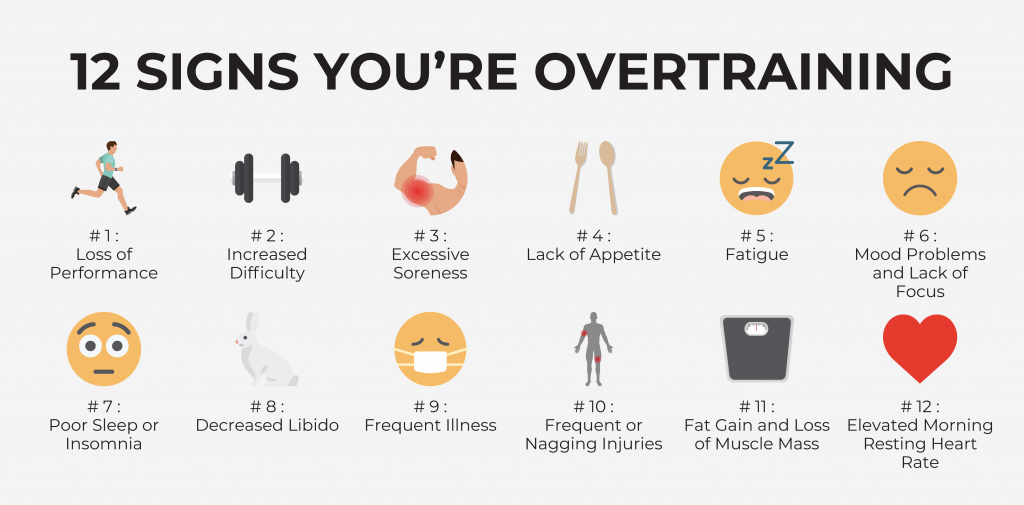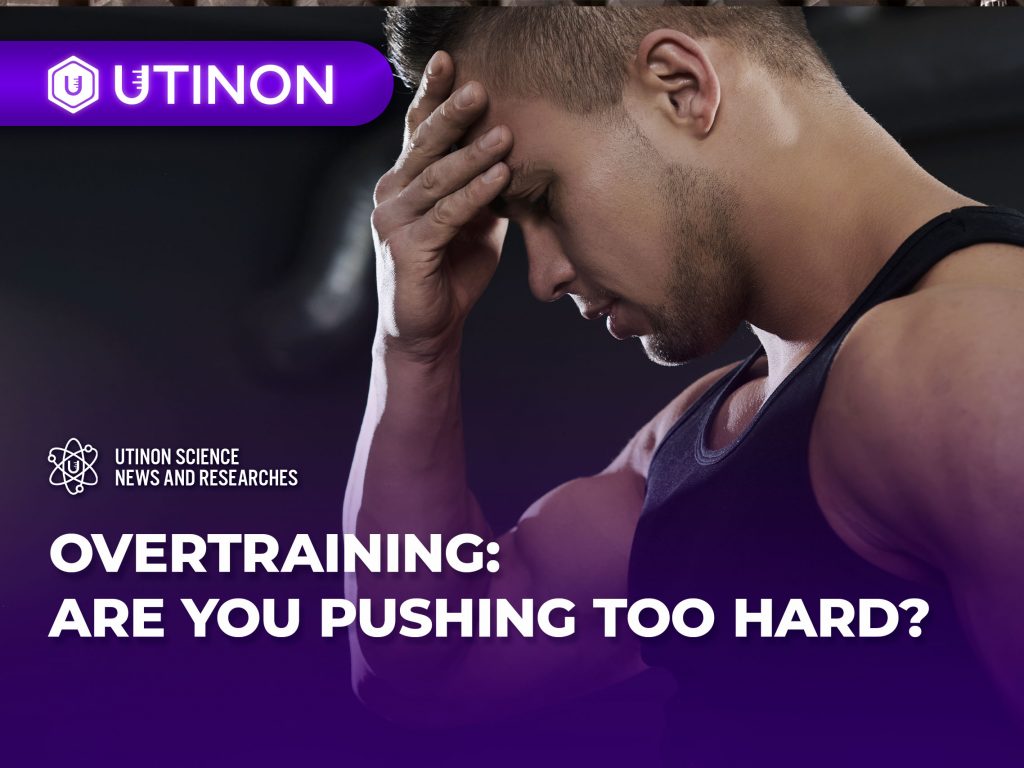Ever feel like your workouts are dragging you down instead of lifting you up? You might be dealing with overtraining—a sneaky problem that hits when you exercise too much without giving your body a break. It’s not just for pro athletes; anyone who loves a good sweat session can fall into this trap. Let’s break it down: what it is, why it happens, and how to bounce back.
Quick Takeaways
- Overtraining is when you work out too hard or too often without enough rest, leaving you weaker instead of stronger.
- Signs include sore muscles that won’t quit, exhaustion, and even feeling grumpy or sick more often.
- Fix it with rest, lighter workouts, better sleep, and good food.
- Fun fact: Up to 60% of top runners have faced this at some point—proof it’s more common than you think!
What’s Overtraining, Anyway?
Picture this: you’re smashing your gym routine, feeling unstoppable—until suddenly, you’re not. Overtraining happens when you push your body beyond what it can handle without enough recovery time. Instead of getting fitter, you stall out or even lose ground. Think of it like overcooking a cake—it’s fine until it burns. Athletes call it “chronic fatigue” or “burnout,” but it’s the same deal: too much effort, not enough recharge.
It’s not the same as “overreaching,” where you train hard but recover fast with a few days off. Overtraining lingers, sometimes for weeks, and can mess with your whole vibe—physical and mental.
Why Does It Happen?
Overtraining creeps in when you’re not balancing the grind with downtime. Here’s what might tip you over the edge:
- Same Old, Same Old: Doing the same workout—like endless bench presses or treadmill miles—can bore your muscles and brain, stalling progress.
- Too Much, Too Fast: Cranking up the intensity or hours without rest is a recipe for trouble.
- Life Stuff: Skimping on sleep, eating junk, or stressing out can make it worse.
Even elite athletes deal with this—studies say 10% of hardcore swimmers and up to 60% of serious runners hit this wall at some point. If they can overdo it, so can we regular folks!
Spot the Signs
How do you know if you’re overtraining? Listen to your body—it’s loud when it’s unhappy. Here’s what to watch for:
- Achy Muscles That Stick Around: Not just post-workout soreness, but pain that won’t leave.
- Wiped Out: Feeling tired all the time, even after a chill weekend.
- Cranky Vibes: Snapping at your dog or feeling down for no reason.
- Getting Sick or Hurt: Colds that won’t quit or random tweaks and pulls.
- Heart on Overdrive: Your resting pulse feels fast, even when you’re just waking up.
If this sounds familiar, it’s time to hit pause.

How to Fix It
Caught in the overtraining slump? Don’t worry—it’s fixable. Here’s how to get back on track:
- Take a Break: Skip the gym for a few days. Netflix and chill are your new best friends.
- Dial It Down: Cut back on workout time or intensity. Swap sprints for strolls.
- Sleep More: Aim for 7-9 hours a night—your body heals while you snooze.
- Eat Smart: Load up on protein, veggies, and carbs to refuel.
- Massage It Out: A good rubdown (even DIY with a foam roller) can ease sore spots.
- Ease Back In: When you’re ready, start with light stuff like short jogs with big breaks.
The goal? Give your body the TLC it’s begging for.
Stop It Before It Starts
Better yet, don’t let overtraining crash your party. Try these tricks:
- Mix It Up: Swap running for yoga or weights for swimming. Keep it fresh.
- Rest Days Are Sacred: Schedule them like date nights—non-negotiable.
- Track Your Feels: Notice if workouts feel harder than they should? That’s a clue.
- Sleep and Eat Like a Champ: Fuel up and rest up—it’s your secret weapon.
Why It Matters
Overtraining isn’t just a buzzkill—it can derail your goals and leave you feeling lousy. Whether you’re chasing a 5K PR or just want to feel good lifting groceries, balance is key. Even the pros overdo it sometimes (hello, 60% of elite runners!), so don’t beat yourself up if you’ve been there. The trick is catching it early and giving yourself grace to recover.
So, next time you’re tempted to sneak in “one more” workout, ask yourself: is this building me up or breaking me down? Your body will thank you for listening.
This version keeps the core info but swaps jargon for everyday language, adds a friendly tone, and sprinkles in relatable examples. It’s ready to hook your blog readers without overwhelming them. What do you think—any tweaks you’d like?
